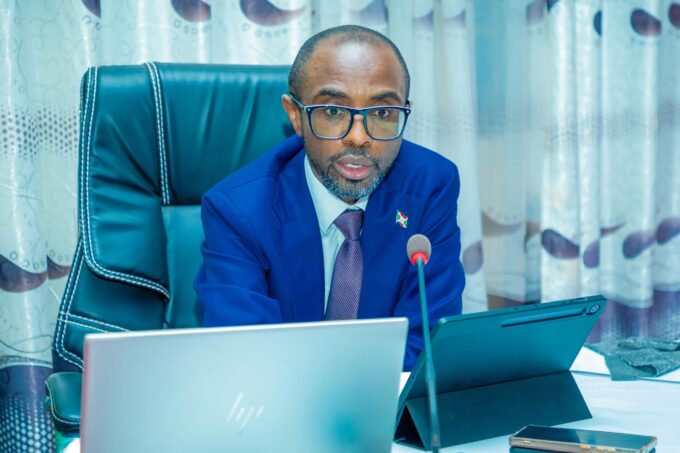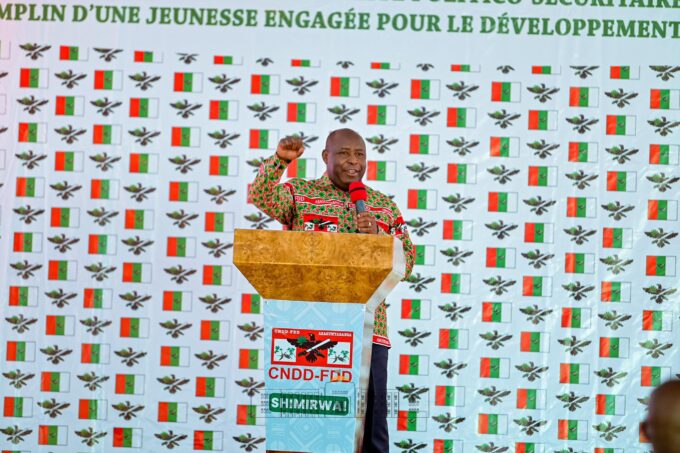Burundi’s prominent civil society organization, PARCEM, has once again sounded the alarm over persistent flaws in the country’s fiscal management, urging swift reforms to ensure the effective implementation of the programme-based budget model.
In a statement issued on Wednesday, PARCEM emphasized the need for greater transparency, accountability, and technical competence within the Ministry of Finance. “The senior staff of the Ministry must be competent technicians, capable of understanding and implementing these reforms,” the organization said in a statement posted on X. “If necessary, foreign expertise should be sought from countries where similar reforms have succeeded.”
MPs Slam Disconnect Between Budget Reports and Reality
PARCEM’s call comes as Members of Parliament continue to express deep concerns about the apparent disconnect between budget execution figures and actual project outcomes. During a recent plenary session, MPs questioned how budget execution rates could reach 100% while physical implementation remained stagnant.
The 2024–2025 programme-based budget, set at 5,075 billion BIF—up from 3,780 billion BIF the previous year—was designed to prioritize investment in public infrastructure, government projects, and salary policy. However, lawmakers argue that despite these ambitions, the implementation remains plagued by systemic resistance and inefficiencies.
MP Pamphile Malayika cited the example of recurring funds allocated to maintaining a non-operational government aircraft. “Its budget forecast was 337 million, but an additional 334 million was spent, bringing the total to 572 million,” he said. “Every year, money is allocated for this plane. Has anyone evaluated whether we could have bought a new one—or at least sold the old one?”
Daniel Gelase Ndabirabe, President of the National Assembly, echoed these concerns, noting discrepancies between reported spending and real-world outcomes. “Even though some people try to hide the truth, we can still see it. You see a physical execution rate of 0%, yet a budget execution rate of 100%. This clearly shows that the money went somewhere,” he said.
MP Agathon Rwasa called for immediate accountability measures and parliamentary investigations. “The programme-based budget is a tool for accountability. When the funds are linked to specific, time-bound projects, it becomes easier to track performance,” he said. “Avoiding this new approach only perpetuates practices that drain our national wealth.”
In response, Finance Minister Nestor Ntahontuye acknowledged the ongoing challenges, attributing them in part to resistance from within. “There is resistance, often due to a lack of understanding,” he said. “It’s a new culture, and not everyone has embraced it.”
Ndabirabe issued a stern warning, suggesting potential government reshuffles if institutions continued to ignore the new budgeting approach. “We, the MPs, will organize a meeting and make recommendations to identify and sideline those individuals,” he said.
Minister Ntahontuye announced in February a major shift to a results-oriented, project-based budget model starting in the 2025–2026 fiscal year. The new approach, he said, would improve prioritization, resource allocation, and transparency. “We will define our objectives first and then seek the necessary financing,” he said, acknowledging the past challenges, noting that unclear project goals had led to substantial financial losses.
PARCEM emphasized that political will at the highest level, technical capacity and expertise, competent human resources, and better coordination among decision-makers are essential to making the programme-based budget a reality. The organization also called for thorough reforms within the Ministry of Finance to ensure it plays a central role in executing the new approach.
Call for Transparency, Expertise, and Resource Mobilization
According to the group, the Ministry of Finance must be restructured and equipped with qualified personnel. A new collaborative system is needed between ministry staff, its political leadership, and other stakeholders, allowing reforms to be implemented without resistance. This includes depoliticizing recruitment processes and ensuring that technical staff understand the budget model. If necessary, PARCEM suggests seeking foreign expertise from countries where similar reforms have worked to help speed up implementation.
Lastly, the organization stressed that unless Burundi can build the capacity to mobilize necessary funds, even the most well-designed programmes risk being delayed or abandoned. “There must be a capacity to mobilize funds to implement these programmes,” PARCEM warned. “Otherwise, we will continue drafting programmes that are endlessly delayed or indefinitely postponed.”








Leave a comment